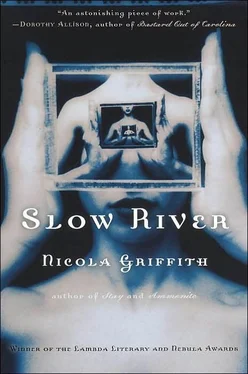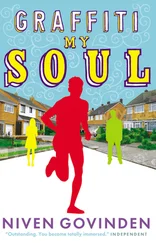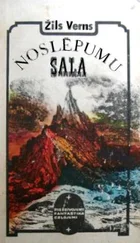Ruth got up and went to the bookshelf that ran along the long wall over the couch. She brought back an old book of photographs. We pushed aside glasses and bowls.
“How about this?” Dunes, blue sky. Camel prints into the horizon. “Or this?” Sunset, sand the color of orange and caramel. “If you find the right color, they’ll match it for you.”
Ellen brought back a tray with two covered dishes and we had to set the book aside. We spent a moment spooning things onto our plates: some kind of spicy vegetable casserole, with roasted potatoes and baked parsnip and carrots.
I tasted the parsnips cautiously. They were light, sweet like fresh pastry. “These are good.” We ate quietly, looked at some more pictures. Ellen said nothing much. I drank steadily.
“Thank you,” I said, and gestured to my empty plate, the book of photographs. “I’m grateful.”
Ellen leaned back in her chair. “You should be.” Ruth shot her a look but she ignored it. “I’ll be honest. I didn’t want you to come. What you did was unforgivable, except that I did a few things I’m not very proud of while I was with Spanner. She has that effect on people.”
“She didn’t exactly hold a gun to my head.” I wondered why I was defending Spanner. Or maybe I was defending myself; I wasn’t a child to be told what to do. At least not anymore.
“True.”
Ruth was utterly still. Ellen seemed to be waiting for something. Something from me. I emptied the wine bottle into my glass, took a hefty swallow. “How did you meet Spanner?”
“In a bar,” Ellen said. “She was playing pool. I couldn’t keep my eyes off her. You know how she is.” Oh yes. “She was losing. Not very gracefully.” I could imagine: the glint in her eyes, hair thrown back, anger flushing her cheeks, her strides around the table getting more and more like the stalk of some hunting animal. “One thing led to another.” She picked up a fresh wine bottle and gestured at Ruth’s glass.
“That’s the third bottle.”
“I know.”
Ruth sighed and pushed her glass across the table. I was getting drunk, but I nodded when it was my turn. Ellen filled her own last.
“So, how about you, Lore? How did you meet Spanner?”
I thought about how to answer, because the question wasn’t only How did you meet her? but Who are you, where are you from? They didn’t need to tell me their backgrounds, because they were Ruth-and-Ellen and Ellen-and-Ruth. Their coupledom said We’re nice people, otherwise we wouldn’t have lived together so long, wouldn’t be capable of love. But I had lived for over two years with a woman they both stepped around very carefully, which made me suspect in itself; and now I was alone. They wanted a pedigree, a provenance, a way of knowing what to expect in the future. I understood it and resented it at the same time.
“I was naked and bleeding, left for dead in the city center. She found me.” I didn’t look at them. “She took me—” I swallowed; I had nearly said home. “She took me back to her flat on Springbank. I had to stay with her because I couldn’t use my real name, For fear my parents… for fear…” Even though I knew what they must be assuming, this felt too close to the truth for comfort. “Anyway, I was a babe in the woods. I had no idea how to support myself. Spanner showed me how.” Now I met their eyes. “And, yes, I did some things I’m not proud of. You don’t know the half of it.”
“But you didn’t know any better,” Ruth said, trying to excuse me, trying to make everything all right.
“Yes, I did. I think I always did. Just as I’m sure Ellen there knew at the time. We can tell ourselves that we had to, we had no choice, until we’re blue in the face, but how many days did I starve while I tried to find other ways to make money? None. I had food, shelter, access to the net. I didn’t need to do those things.” I wanted her to understand. Poor Ruth, or lucky Ruth, who had never had to look inside herself and face what stared back.
“But you mustn’t feel guilty.”
“Why mustn’t I? I am guilty. But you know what bothers me? I don’t feel guilty. Not really. Sometimes I feel this heavy weight in the pit of my stomach, but it’s more like an acknowledgment of stupidity than guilt. I was so stupid.”
“And young,” Ellen said.
I hadn’t looked at it quite that way, maybe because I hadn’t felt young since I was about seven years old. “You might be right. But I knew, all those nights when I lay awake, trying not to think about what I had just done that evening, or afternoon, or morning, I knew that what I was doing was wrong. Oh, most of the time I didn’t care that I hurt others—”
“Not even us?”
It would be easy to lie. I sighed. “Not even you. I was more concerned with how low I must have sunk to do that, what it meant for me, not how you felt. I’m sorry.”
Ruth touched my hand briefly.
“I wonder if Spanner would have corrupted me if I’d spent more than five weeks with her,” Ellen said thoughtfully.
“She didn’t corrupt me;” She had just showed me what was there, pointed me inward to all the seams and twisted paths. “That’s something you can only do to yourself.” It was hot. I was thirsty, but I didn’t want to get up in the middle of this to get a glass of water, not until they understood. I drank more wine. “We all have wounds. We all get hurt. But self-pity, lack of courage, leads to a sort of… mortification of the soul. Corruption. And then it takes more courage, costs more pain, to clean it up afterward.”
I drank more cold wine, thought about the heat in Belize, how I had been cool in my hotel room, cool and unconcerned about the fate of those people in Caracas.
“I was in the jungle once. I lay on my back in the middle of a clearing while insects crawled over my hands and under the small of my back, and looked up. Up through the endless greenery.” I spoke slowly, remembering. “The jungle isn’t just one place, you know—it’s a dozen, all in layers. And the animals and insects of each layer are utterly oblivious to what’s above them, or below. They don’t even know anything outside their world exists. So I lay there, covered in bugs, and tried to imagine what the world looks like to the white hawks and harpy eagles soaring over the canopy hunting for their food—troops of howler and spider monkeys. A green carpet, maybe. Something flat, anyway. They float about up there and have no idea that lower down ant-eaters ramble about, clinging with their prehensile tails to thin tree trunks, leaning down and licking out termites from the high-up nests. Sloths live there, too.”
I had seen them, fur slimed with algae, hanging upside down, creeping from bough to bough. “Did you know that the sloth’s claws are so well adapted to hanging upside down that if it fell off, to the forest floor, it would die because it couldn’t crawl away from predators?” I had been born to soar above the canopy, oblivious. But humans were adaptable, weren’t they? “The eagles don’t know the sloths and anteaters are there. The sloths and anteaters don’t know that underneath them are other layers. Little, quick things that flit from bloom to bloom, like bees and hummingbirds. And kinkajous and geckos and insects. All scampering about, oblivious.” The layers I had seen that day were endless. “The bottom layer is the forest floor. Big things, slow-moving. Heavy. Jaguars, herds of peccaries, tapirs. Where things squeal and run.” Bright crunch of blood. Shrill screams. “Layer after layer, each separate, each teeming with life…”
They were looking at me oddly.
“Don’t you see? Everything works in layers: jungles, cities, people. Each layer has its predator and prey, its network of ally and foe, safe place and trap. Its own ecosystem. You have to get to know the land.” I wondered if I was making sense. “We don’t always know what we’re getting into. And we don’t always know how to get out. We can’t understand everything. We each have a niche.” I remembered Paolo, saying, I’m nothing, a nobody. I thought of Spanner, her amusement when I had suggested a job: Now, why would I want a job? “If we fall out of it, like the sloth, we’re not equipped. We can die. Others can see it happening, but they can’t help. They can’t climb down the tree and help us back up. We have to do it ourselves.” I was crying. I couldn’t seem to stop.
Читать дальше












